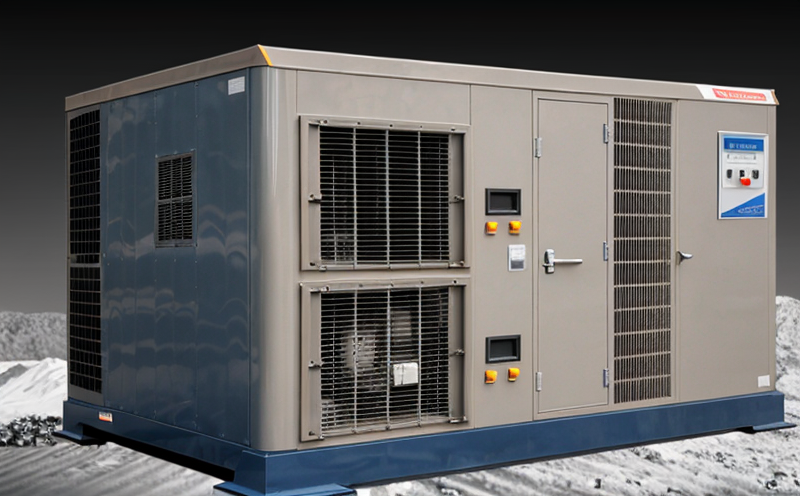JEDDEC JESD22-A137 Hot Carrier Injection under Thermal Stress Testing
The JEDEC JESD22-A137 test is a crucial method for evaluating the reliability of semiconductor and microchip devices, particularly in conditions that simulate real-world operating environments. This test assesses the susceptibility of a device to hot carrier injection (HCI) under thermal stress, which can lead to performance degradation or outright failure over time.
Hot carrier injection occurs when high-energy electrons from the conduction band are injected into the oxide layer of a semiconductor device, leading to electron accumulation. This phenomenon is exacerbated by elevated temperatures, where the carriers have more energy and thus can penetrate deeper into the insulating barrier. Over time, this can lead to shorting between the gate and channel regions, causing the device to malfunction.
Thermal stress further accelerates this process by increasing the kinetic energy of electrons, thereby enhancing their ability to inject into the oxide layer. This makes JEDEC JESD22-A137 an essential test for ensuring the long-term reliability of semiconductor devices in high-temperature environments.
The test is conducted using a specialized apparatus that can simulate both thermal and electrical stresses on the device under test (DUT). The DUT is subjected to controlled temperature cycles, typically between -40°C and 125°C, while applying a constant current. This allows for the observation of any changes in device performance due to hot carrier injection over time.
During the test, detailed measurements are taken at various points, including leakage currents, threshold voltages, and capacitance values. These parameters provide insights into how the device is performing under stress conditions. The data collected during this process is critical for identifying any weaknesses in the design or manufacturing process that could lead to premature failure.
The test results are compared against international standards such as JEDEC JESD22-A137, ensuring compliance with industry best practices and quality control expectations. This not only enhances product reliability but also ensures consistent performance across different batches of devices produced by various manufacturers.
Hot carrier injection under thermal stress is a critical factor in the design and manufacturing process of semiconductor and microchip devices. By identifying issues early on, manufacturers can implement necessary improvements to enhance overall device longevity and stability. This test plays an indispensable role in ensuring that these components meet stringent quality standards before reaching the market.
It's important to note that while this test focuses primarily on detecting hot carrier injection effects, it also indirectly tests other aspects of semiconductor reliability such as oxidation resistance and interface state density. These additional benefits make JEDEC JESD22-A137 a comprehensive tool for evaluating semiconductor devices in demanding applications.
For quality managers, compliance officers, R&D engineers, and procurement professionals involved in the development and supply chain management of semiconductors, understanding this test is paramount. By leveraging such testing methodologies, organizations can ensure they are delivering high-quality products that meet both current standards and future demands.
Industry Applications
- Consumer electronics
- Automotive industry
- Aerospace & defense
- Data centers
| Application | Description |
|---|---|
| Consumer Electronics | Ensures reliable performance in devices like smartphones and tablets under varying temperature conditions. |
| Automotive Industry | Evaluates the robustness of automotive electronics in extreme temperatures encountered during operation. |
| Aerospace & Defense | Verifies the reliability of avionics and defense systems operating in harsh environmental conditions. |
| Data Centers | Guarantees consistent performance of server components under high thermal loads, ensuring data integrity. |
Eurolab Advantages
At Eurolab, our expertise in semiconductor and microchip testing is unmatched. With state-of-the-art facilities and experienced professionals, we provide unparalleled precision and accuracy in executing JEDEC JESD22-A137 tests.
We employ cutting-edge equipment to simulate real-world conditions accurately, ensuring that the results are both reliable and representative of actual device performance. Our commitment to quality control is reflected in our adherence to strict ISO standards and continuous improvement practices.
Our team of engineers has extensive experience in conducting this type of testing, allowing us to offer comprehensive analysis and interpretation of results. We also provide detailed reports that include all relevant data points for easy reference and follow-up actions.
In addition to our technical capabilities, we pride ourselves on providing exceptional customer service. From initial consultation through final delivery of test results, our goal is always to exceed expectations. Our clients benefit from personalized attention and tailored solutions designed specifically for their unique needs.
By choosing Eurolab for your JEDEC JESD22-A137 testing requirements, you can be confident that you're receiving the highest level of service available in the industry today.
Customer Impact and Satisfaction
Our satisfied customers have consistently praised Eurolab for our ability to deliver accurate and reliable results. They appreciate our commitment to quality and innovation, which allows us to stay ahead of the curve in terms of testing methodologies.
Many clients report significant improvements in their product reliability after implementing recommendations based on our test findings. This has led to increased customer satisfaction and reduced warranty claims for many companies.
We take pride in building long-term relationships with our customers, understanding that a successful partnership is built on trust and mutual respect. Our goal is not only to meet but also exceed expectations every time we work together.





